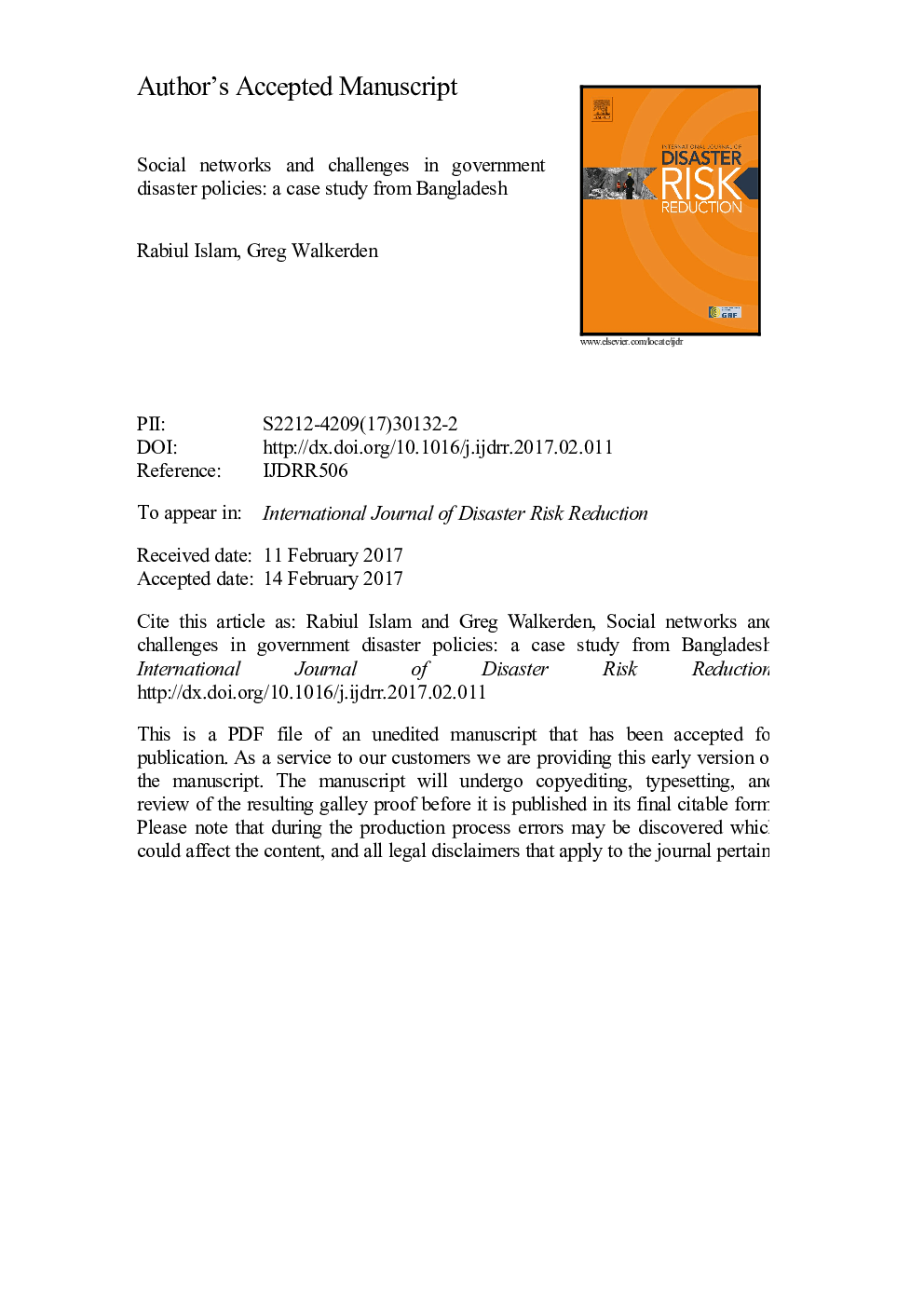| Article ID | Journal | Published Year | Pages | File Type |
|---|---|---|---|---|
| 5116099 | International Journal of Disaster Risk Reduction | 2017 | 29 Pages |
Abstract
This study analyses recent disaster management and climate change policies in Bangladesh, evaluating the ways in which they do, and do not, take households' social networks into account. The analysis of the policy documents is qualitative: drawing out explicit themes and implicit acknowledgements through close reading of the text. The evaluation of their treatment of households' social networks is based on a combination of field research, including disaster practitioner and policymaker interviews, meetings with local journalists and local government officials, and NGO workshops, and a review of the literature. The findings show that despite the importance of social networks in disaster resilience and recovery, these networks are not given adequate emphasis in government policies. Organisations' linking social networks (i.e. governments' links with foreign states, donors, and others) are emphasised in policies, but households' bonding networks (households' relationships with immediate family members and relatives), bridging networks (households' relationships with neighbours and friends), and their local linking relationships (notably with NGOs and local government) are largely ignored. This study argues that existing disaster management policies should be revised, with substantial local community input, to better leverage local social capital.
Related Topics
Physical Sciences and Engineering
Earth and Planetary Sciences
Geophysics
Authors
Rabiul Islam, Greg Walkerden,
